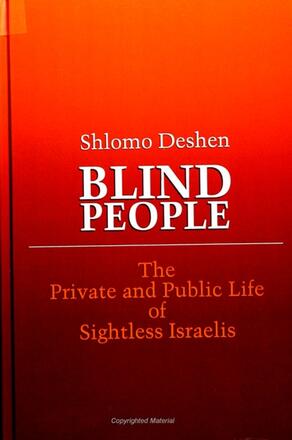
Blind People
The Private and Public Life of Sightless Israelis
Alternative formats available from:
Description
Blind People approaches disability from a fresh perspective: people with an unusual body are conceived of relativistically as a variant of humanity, much the way anthropology approaches people of different culture. While deeply empathic to its subject matter, Blind People raises questions that anthropologists ask routinely, but which are commonly avoided in everyday life because they touch on sensitive matters. Based on fieldwork in Israel, the book constitutes an ethnography of blind Israelis. It starts by focusing on intimate issues of the management of the sightless body, goes on to discuss the role of the blind person in the domestic setting, and moves to issues of how the blind person strives to attain material requirements. Finally, the book relates the way blind people cope with problems of associating with both blind and sighted people in arenas of leisure activity and public affairs. Deshen's book aims to present a truthful, dignified, fully human depiction, in the tradition of socio-cultural anthropology.
Shlomo Deshen is Professor of Social Anthropology at Tel-Aviv University. A past president of the Israel Anthropological Association, he is the author of The Mellah Society: Jewish Community Life in Sherifian Morocco.
Reviews
"This book provides an extraordinary look into the lives of sightless people. It is both a deeply moving account of the difficulties and contradictions with which sightless people struggle while at the same time showing how the lives of such people are produced by a certain constellation of cultural and social factors. Deshen has done a superb job of depicting in rich ethnographic detail the experience of being sightless while at the same time making an important theoretical contribution to the anthropology of disability. He shows in numerous and detailed ways how culture and the role of symbolization shape the experience of sightless people. His discussions range from the sightless person's decision to use a cane to the ways in which sightless people are incorporated into wider social networks and institutions. " — Howard Eilberg-Schwartz, Stanford University